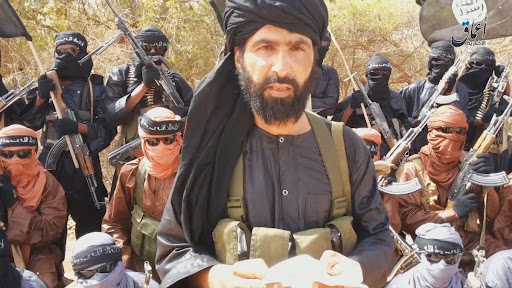
French President Emmanuel Macron, has stated that his country’s troops killed the leader of the Islamic States in the Greater Sahara (ISGS), Adnan Abu Walid Al-Sahrawi.
Macron stated that the killing of Sahrawy is yet another “major success” for French military forces in their fight against terrorism in the Sub-Saharan region.
Adnan Abou Walid al Sahraoui, chef du groupe terroriste État islamique au Grand Sahara a été neutralisé par les forces françaises. Il s’agit d’un nouveau succès majeur dans le combat que nous menons contre les groupes terroristes au Sahel.
— Emmanuel Macron (@EmmanuelMacron) September 15, 2021
He also mentioned that the French army had recorded some casualties but he gave no further details in his statement Wednesday night.
“This evening, the nation’s thoughts are with all its heroes who have died in the Sahel for France … with the grieving families, with all its wounded. Their sacrifice has not been in vain. With our African, European and American partners, we will continue our efforts in this battle,” Macron said.
Who is Sahrawi?
The 48-year-old terrorist was born in Laayoune, Western Sahara, Morocco, to a wealthy family who fled the country for an Algerian refugee camp. He became a member of the Polisaro Front, where he received military training.
Sahrawi co-founded “Jama’atut Tauhid Wal Jihad Fir Garb Ifriqiyya” (Movement for Monotheism and Jihad in West Africa) in Oct. 2011, which split from Al-Qaeda and operated primarily in Southern Algeria and Northern Mali.
In 2013, he declared himself the leader of a group called “Mujahideen Shura” (Council of Mujahideen), which later merged with Mokhtar Belmoukhtar to form Almourabitoon.
In 2015, Saharawi pledged allegiance to the Islamic State (IS) and formed the Islamic State in Greater Sahara, which was later accepted by the IS more than a year later.
Islamic State in Greater Sahara (ISGS)
Since its formation, ISGS has become the dominant terrorist group operating along the Mali-Niger border over the past three years, according to an Amnesty International report.
The ISGS attacks have displaced tens of thousands of people and forced the closure of schools across the border. Thousands of people have migrated to secure areas abandoning their properties in the region.
“The group recruited primarily among marginalized pastoral communities, exploiting their deep-rooted grievances against the state, violations by security forces, and competition for resources with farming communities.”
“ISGS then began extracting ‘taxes’ from border communities. Over time their methods have become more predatory. In a series of large-scale attacks, ISGS has rampaged through villages on their motorbikes, targeting and killing men and older boys and sometimes also shooting to death or severely injuring other civilians.”
“In the first three months of 2021, at least 306 civilians were killed in that part of Tillabéri and neighbouring Tahoua regions in just four deadly attacks, including 46 children between the ages of five and 17. In May 2021, ISGS claimed responsibility for two of the attacks,” gathered the report.
Support Our Journalism
There are millions of ordinary people affected by conflict in Africa whose stories are missing in the mainstream media. HumAngle is determined to tell those challenging and under-reported stories, hoping that the people impacted by these conflicts will find the safety and security they deserve.
To ensure that we continue to provide public service coverage, we have a small favour to ask you. We want you to be part of our journalistic endeavour by contributing a token to us.
Your donation will further promote a robust, free, and independent media.
Donate HereStay Closer To The Stories That Matter




